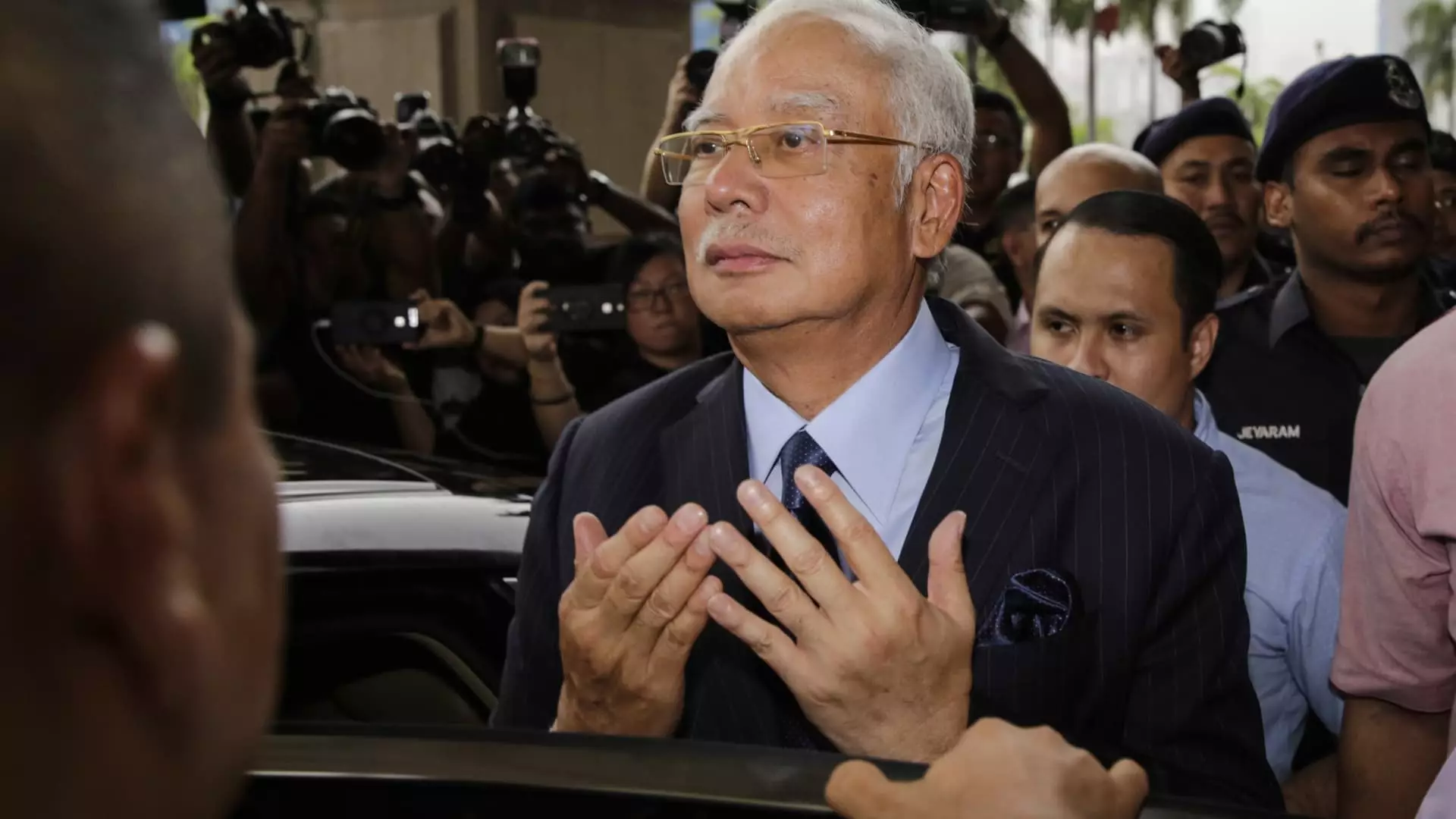Malaysia’s former premier, Najib Razak, had his jail sentence for graft and money laundering related to the multibillion-dollar 1MDB scandal halved on Friday. This move has sparked concerns about the commitment of Prime Minister Anwar Ibrahim’s government to fighting corruption. Anwar, who ran on an anti-corruption platform, formed a coalition with Najib’s party, the United National Malays Organisation (UMNO), after a hung parliament election in November 2022. This reduction in Najib’s sentence follows the dropping of graft cases against him and other UMNO leaders in the previous year, leading to accusations that the Anwar administration is backsliding on anti-corruption reforms.
Najib began serving a 12-year jail term in August 2022 but will now be released in 2028 due to the reduction in his sentence. Additionally, the fines imposed on him have been reduced from 210 million ringgit ($10.59 million) to 50 million ringgit. However, the statement from Malaysia’s Pardons Board did not provide a reason for halving Najib’s sentence, leaving many questioning the motives behind this decision. If Najib fails to pay the reduced fine, an additional year will be added to his jail term.
Najib’s conviction stems from his involvement in the state fund 1Malaysia Development Berhad (1MDB), which saw an estimated $4.5 billion being stolen, with over $1 billion channeled into accounts linked to the former premier. However, Najib has consistently denied any wrongdoing, claiming that he was misled by fugitive financier Jho Low and 1MDB officials about the origin of the funds. He asserts that he believed the money was donations from the Saudi royal family. Despite his conviction, Najib remains on trial for various other corruption cases related to 1MDB.
The reduction in Najib’s sentence was decided by Malaysia’s Pardons Board, which advises the king on the granting of pardons. The board includes the attorney-general and government officials and is chaired by Malaysia’s king. While the king’s role in Malaysia is largely ceremonial, the federal constitution empowers them with discretionary powers, such as pardoning convicted individuals. In this case, Najib’s application for a royal pardon was among five others reviewed by the board, headed by Malaysia’s former king Al-Sultan Abdullah Ahmad Shah. Al-Sultan Abdullah’s five-year reign ended on Tuesday, and he was succeeded by Sultan Ibrahim Sultan Iskandar from the southern state of Johor.
The reduction in Najib Razak’s jail sentence has raised significant concerns about the commitment of Malaysia’s current administration under Prime Minister Anwar Ibrahim to combat corruption. Anwar’s alliance with the UMNO, a party that has faced numerous corruption allegations, coupled with the dropping of graft cases against UMNO leaders, has led to accusations of backsliding on anti-corruption reforms. This move not only undermines public trust in the government’s determination to eradicate corruption but also sends a signal that those in power can receive preferential treatment when it comes to legal consequences.
To restore faith in Malaysia’s anti-corruption efforts, it is crucial for the government to take tangible actions that demonstrate its genuine commitment to fighting corruption. This would include a transparent and impartial investigation into allegations of corruption, regardless of the individual’s political affiliations or positions of power. Additionally, there must be a clear separation of powers, ensuring that legal decisions are not influenced by political considerations.
The reduction in Najib Razak’s jail sentence raises significant concerns about Malaysia’s commitment to combating corruption. This controversial decision, coupled with the dropping of graft cases against UMNO leaders, undermines the government’s credibility and transparency in dealing with corruption. As Malaysia strives to establish itself as a responsible and accountable nation, it is imperative that the government takes immediate steps to address these concerns and restore public trust in its anti-corruption efforts. Genuine reforms, unbiased investigations, and strict adherence to the rule of law are vital in achieving these objectives.


Leave a Reply